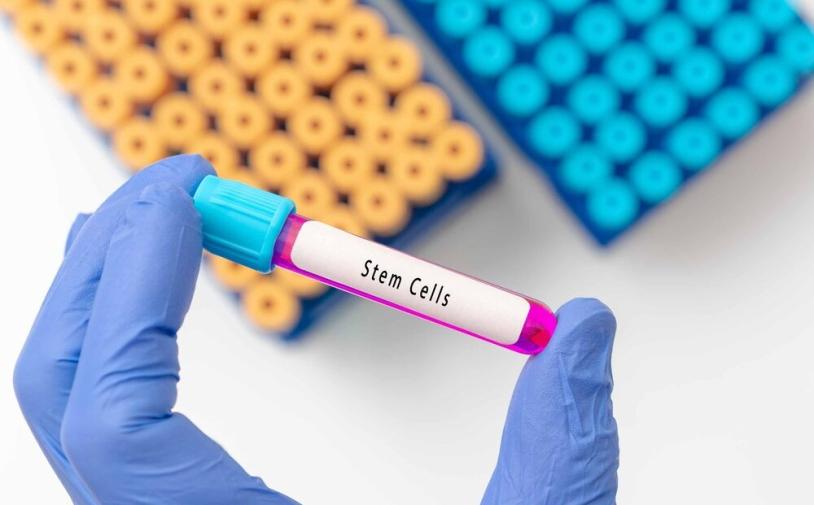Monday, August 19, 2024
Cells in the body are constantly at work to maintain health and support life. When these cells turn malignant, however, they pose an immense threat.
Good news: Cancer stem cell therapy holds promise for new treatment options and potential cures. This cutting-edge approach targets cancer stem cells to target the disease’s root cause and prevent relapse.
Read on to learn about this theory and the latest stem cell therapy innovations transforming the future of oncology.
The Stem Cell Theory of Cancer
Cancer’s stem cell theory suggests that tumors contain a small population of cancer stem cells (CSCs) that initiate and perpetuate cancer. CSCs can regenerate tumor cells. They’re often resistant to conventional treatments (e.g., chemotherapy and radiation therapy), causing relapse after initial success.
The theory’s bottom line is that targeting CSCs can help achieve more effective and lasting cancer treatments. Learn more about how stem cell-based therapies integrate new therapies with existing treatments in this article.
How is Stem Cell Therapy Used for Cancer Treatment?
Stem cell therapy leverages unique stem cell properties to target and combat cancer cells. The stem cells can deliver medicine directly to tumors and boost the body’s natural defenses against cancer. So far, researchers have explored different types of stem cells, including embryonic, adult, and induced pluripotent stem cells.
This cancer treatment leverage stem cell’s regenerative properties in several ways. A prime example is stem cell transplants, particularly for hematologic cancers like leukemia, multiple myeloma, and other blood cancers.
These transplants involve the infusion of hematopoietic stem cells from bone marrow, peripheral blood, or umbilical cord blood. The goal is to restore the patient’s ability to produce healthy blood cells after high doses of chemotherapy or radiation.
Will Stem Cells Cure Cancer?
“Stem cells cure cancer” is an oversimplified idea. Medical science and innovation isn’t quite there yet. Stem cell treatment is yet to be proven as a standalone cure for cancer. What we’re seeing is that success rates depend on factors like cancer type, patient health, and specific treatment protocols.
Nevertheless, the outlook is optimistic. Data strongly suggest the potential of stem cells for cancer therapy.
In recent research, 71.3% of patients with blood cancers survive, and 63.7% are disease-free one year after allogeneic stem cell transplants (i.e., uses donor cells). Another study also found that overall survival improved for all racial and ethnic groups undergoing autologous and allogeneic transplants.
Keeping abreast of innovations allows healthcare providers and patients to make informed judgments about treatment options.
Innovations in Stem Cell Therapy for Cancer Treatment

Stem cells and cancer treatment trends offer new hope in the fight against cancer. Here’s a look at some breakthroughs impacting the way we approach treatment.
Immune Cell Therapies
Immune cells can target and eliminate cancer cells. CAR-T cell therapy, for instance, genetically modifies a patient’s T-cells to attack specific tumor cells.
This approach has demonstrated significant success in treating certain types of cancer. Researchers at Stanford Medicine studied the potential risks of secondary cancers following CAR-T cell therapy. They found a low risk of 6.5% over three years post-therapy for over 700 patients.
Pluripotent Stem Cells
University of Arizona Health Sciences researchers made a big step forward in regenerative medicine. They successfully modified pluripotent stem cells to evade immune recognition, addressing immune rejection.
Immune rejection in cancer patients can complicate treatments like stem cell transplants. When a patient’s immune system recognizes transplanted cells or tissues as foreign, it can attack and destroy them, reducing treatment effectiveness.
The ability to produce these genetically modified stem cells in large quantities ensures a steady supply for therapeutic applications.
Cord Blood Transplantation
Innovations also focus on minimizing stem cell therapy’s side effects. A recent Anthony Nolan study discovered that screening umbilical cord blood units improves selection for cord blood transplantation donors. It allows clinicians to identify optimal matches based on genetic compatibility, thereby minimizing complications for recipients.
Successful engraftment of transplanted stem cells in the recipient’s bone marrow stimulates healthy blood cell production. This process is critical in bone marrow transplants because it restores the patient’s immune function and combats diseases.
Continued research and clinical trials can further refine these stem cell cancer treatments. Knowing the latest research and testing behind the scenes can help patients feel more confident in their decisions. The more the medical community progresses, the closer we come to offering better treatment results and fewer side effects.
You or your loved one has the best shot at recovery. Explore how Stemaid Institute’s advanced stem cell therapies can offer hope and enhanced outcomes in your fight against cancer.
References:
- Recent Advancement in Stem Cell Therapies for Cancer Treatment - ScienceDirect
- Hematopoietic Cell Transplantation: From a Curative Concept to Cure - ASH
- Developing an Allogeneic Hematopoietic Progenitor Cell Transplant Service in a Resource-Limited Country: Challenges and Outcomes - PubMed
- Trends in volumes and survival after hematopoietic cell transplantation in racial/ethnic minorities - ASH
- Risk of secondary cancers after CAR-T cell therapy low, according to large study - Science Daily
- Genetically modified pluripotent stem cells may evade immunological rejection after transplantation, study shows - Science Daily
- New research from Anthony Nolan provides clues to improving the success of cord blood transplants - Anthony Nolan









